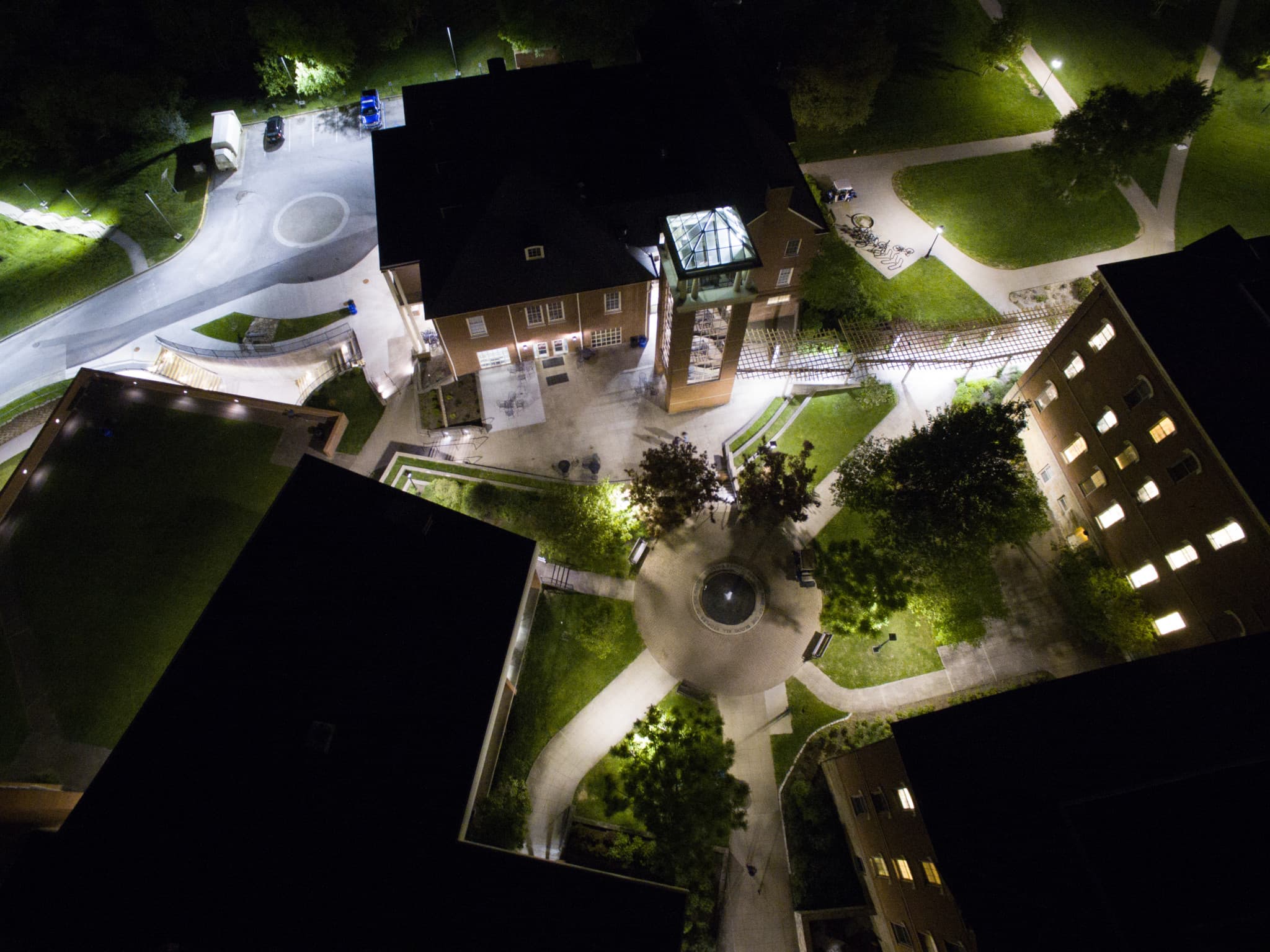
Supportive & Sustainable Living
Berea College commits itself to maintain a residential campus and to encourage in all community members a way of life characterized by mindful and sustainable living, health and wellness, zest for learning, high personal standards, and a concern for the welfare of others.
At Berea College, we live and learn, simultaneously, together, inside and outside the classroom. In fact, our entire campus is a living-learning laboratory that teaches us to take care of ourselves, others, and the earth. The seventh Commitment is informally known on campus as the “kitchen sink” commitment, because it involves a holistic approach to improving how we live and behave on campus and on an individual level.
It means that we pay close attention to our impact on our environment and that we seek to reduce it. It means that as we take care of the earth, we take care of ourselves so we can be the best we can be. It means that we immerse ourselves in learning and seek to learn as much as we can our entire lives. And it means that we acknowledge we are not on this journey alone—we will need each other along the way.
Past and Present
When our Great Commitments were first articulated formally in the 1960s, the seventh Commitment utilized the phrase “plain living.” The phrase brings to mind living within one’s means, unornamented, in touch with the land, and with a sense of self-sufficiency. Plain living is quintessentially Appalachian, and reflective of rural values.
This way of doing things evokes pride in hard work, high personal standards, and concern for the welfare of your neighbors. All these elements of plain living came into play as John G. Fee and other founders set up the College. The conditions were rugged, and their goal of providing a quality education “at the least possible expense” to those who needed it most depended on the founders’ willingness to get their hands dirty and build it from the ground up.
But where they parted with the traditional rural values of the time was in their radical views on social issues, especially in respect to race and gender. A residential campus was established from the beginning, and students learned not only from instructors, professors, and books, but from each other. Men and women were expected to show society they could learn together without scandal. For the white and black students, who had never matriculated in society together, Berea meant learning to mend these rifts as well. They lived together, worked together, and went to church together, and by doing so became examples for the rest of society. Today, that example continues as students from “every nation and clime” still study together, work together, and live together in a tight-knit community.
Students over the decades have participated in a self-sufficient community. They have built College buildings, run bakeries and laundries, established and operated a power plant that supplied electricity for the city, performed campus maintenance, and managed financial accounts. The campus itself is a living and learning laboratory. As times change, so must language. What we used to call “plain living” is no longer enough. Again, the influence of industry and now everyday living and consumption has impacted not only our natural resources but our whole planet and our whole selves. To address this, we have broadened “plain living” to “mindful and sustainable living.” This means many things, but at its core it means being aware of your impact on the environment and reducing harm through personal standards and behaviors. It also means being aware of how your behavior impacts you and your neighbor.
Moving Forward
This commitment is not just about living well—it is about living the best we can. Part of doing this is continuously keeping track of how we’re doing and seeking to continuously improve. This means we look for more ways to support a residential campus through themed living and student life initiatives; we pay closer attention to our health and wellness and encourage all in our community to do so as well; and that we reduce our ecological footprint more and more.
While all parts of the seventh Commitment are important, the environmental sustainability portion has never been more important. Impending climate change means we as a college community must serve as an example to the rest of the world of how to live sustainably. Our agriculture classes already take field trips to strip mining sites to plant trees, and spring of 2017 saw the opening of the Berea College Forestry Outreach Center, which will, hopefully, increase appreciation of our forested lands.
Our most ambitious and progressive project to date is the construction of a hydroelectric dam. The Matilda Hamilton Fee Hydroelectric Station is the first hydro plant to be completed by an American college or university. It is also the first small hydroelectric plant built in Kentucky in 94 years. The small-scale demonstration project produces on average about half of the electricity the College uses on an annual basis, further reducing the school’s carbon footprint.

Leandra Forman ’14 rescues squash. Squash that might otherwise go to waste. Forman, operations manager at Lexington-based Food Chain, works not only to redistribute the food into communities with food insecurity, but also to teach the community how to prepare it.

The life of a Berean after graduation often leads to a career in community and/or public service, where the emphasis on high personal standards and concern for the welfare of others can translate to the changing of lives. Dallas Leake’s path led to just such a life.
